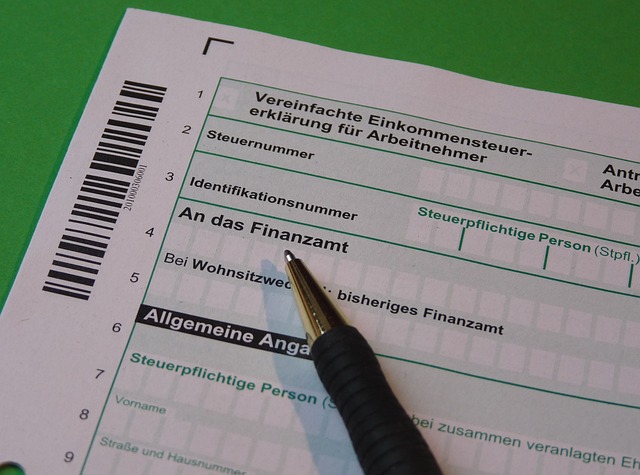International businesses operating in the UK require professional Corporate Tax Return (CTR) translation services due to complex regulations and the risk of errors. These services employ expert translators with accounting knowledge, ensuring precise financial data communication and compliance with local tax laws. Engaging specialized translators minimizes legal issues, saves time, and allows companies to focus on core activities. Staying current with UK tax law changes is critical for successful CTR translation and filing.
In today’s global economy, international businesses face complex tax obligations across borders. Accurate translations of corporate tax returns are crucial for navigating these challenges. This article explores the intricacies of UK corporate tax returns and the importance of professional translation services for ensuring compliance and precision. We delve into common challenges, best practices, and real-world case studies, providing essential insights for businesses seeking seamless international tax management.
- Understanding Corporate Tax Returns for International Businesses
- The Challenges of Accurate Translations in Tax Documentation
- Why Choose Professional Translation Services for Tax Returns
- Best Practices for Effective UK Corporate Tax Return Translations
- Case Studies: Successful Translations in Action
Understanding Corporate Tax Returns for International Businesses

International businesses operating across borders face a unique challenge when it comes to tax compliance, and accurate translations are key to navigating this complex landscape. Corporate Tax Returns (CTR) in one country often differ significantly from those in another, requiring not just a deep understanding of local tax laws but also proficiency in translating financial documentation. In the UK, for instance, CTRs involve specific regulations and reporting requirements that may vary from other jurisdictions.
Hiring professional translation services specialising in Corporate Tax Returns can bridge this gap. These experts ensure that every detail, from defining terms to capturing nuances in accounting practices, is accurately conveyed across languages. This not only reduces the risk of errors but also facilitates a smoother tax filing process for international companies, allowing them to focus on their core business activities while adhering to local tax regulations.
The Challenges of Accurate Translations in Tax Documentation

Accurate translations of corporate tax returns for international businesses operating in the UK present several unique challenges. One of the primary hurdles is the intricate nature of tax legislation, which varies significantly between jurisdictions. Tax terms and concepts often have precise, context-specific meanings that require a deep understanding of both the source and target languages. Misinterpretations can lead to significant errors, financial penalties, or even legal complications for multinational corporations.
Additionally, tax documentation frequently involves complex financial data, graphs, and charts that need to be translated with meticulous care. Ensuring numerical accuracy and preserving the integrity of visual elements require specialised skills. Reputable UK translation services dedicated to corporate tax returns employ professional translators with expertise in accounting and taxation, coupled with native-level proficiency in the target languages, to overcome these challenges and deliver precise, compliant translations.
Why Choose Professional Translation Services for Tax Returns

When it comes to navigating complex international tax regulations, accuracy is paramount. Relying on machine translations for corporate tax returns can be risky, leading to costly errors and potential legal issues. That’s why many businesses in the UK opt for professional translation services. These experts not only possess a deep understanding of tax terminology but also adhere to strict industry standards, ensuring every document is translated with precision and confidentiality.
Professional translators are well-versed in the nuances of different tax systems and can adapt language to meet legal requirements. They employ specialized glossaries and style guides to maintain consistency, making it easier for accountants and tax professionals to review and verify the translations. This level of expertise minimizes the risk of misinterpretation, ensuring your Corporate Tax Returns are handled with the utmost care and accuracy.
Best Practices for Effective UK Corporate Tax Return Translations

When it comes to translating UK corporate tax returns, precision is paramount. Businesses operating internationally must ensure their financial documents are accurately rendered into the language(s) of their target markets. This involves more than just word-for-word translation; it requires a deep understanding of both the legal and fiscal nuances specific to the UK’s tax system.
Best practices for effective corporate tax return translations include engaging professional translators with expertise in finance and taxation, utilizing translation memory tools to maintain consistency across documents, and cross-checking translations with in-country experts to guarantee accuracy. Additionally, staying updated on changes to UK tax laws and regulations is essential to ensure compliance and avoid potential pitfalls.
Case Studies: Successful Translations in Action

In the complex world of international business, accurate translations of corporate tax returns are non-negotiable. Case studies demonstrate the real-world impact of high-quality UK translation services for tax documents. For instance, a multinational corporation based in the UK needed to file taxes in several European countries, requiring seamless translations of financial reports and statements. The translation service not only ensured grammatical precision but also adapted terminology to meet local regulatory standards, avoiding potential legal pitfalls and delays.
This example highlights how professional translators with expertise in corporate tax language can navigate intricate linguistic and cultural differences. They employ specialized glossaries and style guides to maintain consistency across documents, ensuring compliance and simplifying the filing process. Such successful translations have led to smoother operations for international businesses, saving time and resources while mitigating risks associated with inaccurate or inconsistent documentation.
Navigating the complex landscape of international business tax documentation requires precise translations that accurately reflect corporate tax returns. In light of the intricate nature of these documents, relying on professional translation services is paramount. By adhering to best practices and leveraging successful case studies, businesses can ensure their UK corporate tax return translations are error-free, compliant, and foster a positive relationship with tax authorities. Choosing expert translators specialized in tax documentation is key to avoiding pitfalls and smoothly managing international fiscal obligations.
